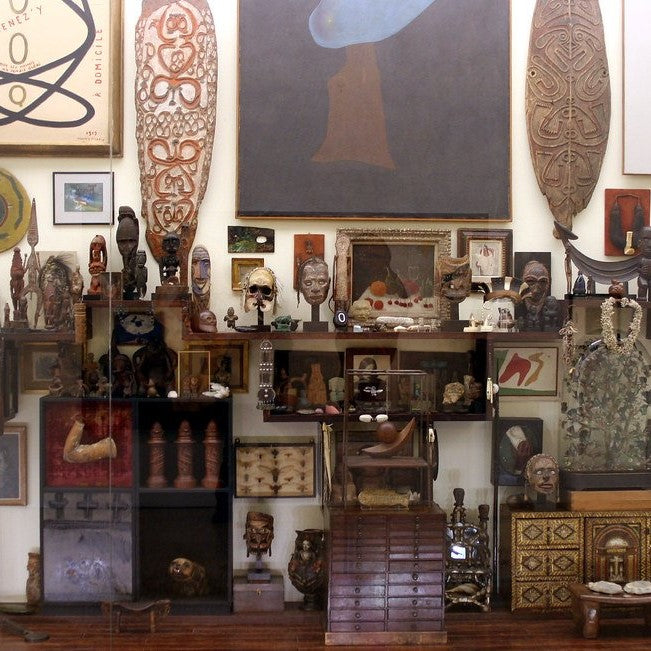The Value of an Art Appraisal: 5 Scenarios for Hiring a Pro



We sometimes get questions from friends and clients about whether or not they should consider having their artwork appraised. While we don't claim to be experts, we've been digging for answers and we've learned some valuable information. Although everyone has different reasons for inquiring, we've determined that there are some situations and circumstances for which an art appraisal is important and necessary.
The process for appraising a work of art is, well, complicated. For example, there are different types of value, i.e. fair market value and replacement value, with different requirements depending on your purpose for seeking an appraisal. It is not as simple as eyeballing a painting and providing an impression based on gut instinct. Appraisals are not something everyone in the industry is equipped to do, and while some art professionals such as gallerists and art dealers can provide an estimated value, in many situations a certified valuation should be undertaken by a professional, credentialed art appraiser, for which you receive an official report.
We'll get into some of these topics more in-depth as our series continues including advice from experts in the field. In the meantime, we're sharing what we've learned as well as a few tips about navigating the appraisal process.
Important Disclaimer: We aren’t experts in the art of appraisal (or the appraisal of art) and you should consult a tax professional, certified art appraiser, or your insurance authority depending on the specific nature of the advice you seek relating to art appraisals. We’ll provide some valuable links and resources as we go.
When and Why Should You Consider Hiring a Professional Appraiser?
1. You're Just Plain Curious
The PBS fans among us know about and perhaps also love the show "Antiques Roadshow." With over forty seasons under their belts, the show’s producers invite ordinary folks who own unique pieces, prized possessions, and cool collectibles to report to the set with their fine art or other cherished items. A professional art appraiser or other expert inspects them one by one and provides an assessment of value. If you haven't watched it yet, it’s an interesting foray into the work of appraisers.
In other words, some people are just curious about the value of their artwork. If you're willing to pay the fee, this is a legitimate reason to have your art appraised. Maybe you found what you believe to be a valuable treasure at your local antique store, and want to confirm your suspicions. Or perhaps you have inherited a family heirloom artwork for which you have no idea the value. Obtaining an appraisal will satisfy your sense of curiosity and have the added benefit of providing you with a legal record of the value.
Just keep in mind that an appraisal will likely cost a minimum of several hundred dollars, given that a professional appraiser has to conduct significant research, maintain substantial education credentials, and provide extensive documentation as part of a legal report of their findings. Their labors and skillset portend value and these aren’t situations for which you want to cut corners.
Of note: There is a difference between an appraisal and a valuation with the latter being less involved. You may determine that a valuation is sufficient for the purposes of satisfying your curiosity as opposed to matters associated with insurance or tax requirements, for which you’ll need the appraisal.
2. As Part of Valuing an Estate
When you’re determining the fair distribution of assets, acquiring a valuation or appraisal can be very useful to ensure equitable distribution.
Appraisal of an art collection can be necessary when setting up a trust, going through a divorce, or settling an estate. While these aren’t fun scenarios to consider, it is wise to know the value of these assets and in many cases, the IRS requires appraisal reports for tax purposes.
In the case of estate planning, an appraiser is typically assessing for fair market value in order to determine the division of possessions among family and estate recipients. You’ll ultimately need this type of appraisal report for tax purposes as well.
3. To Insure Against Damage or Theft
If you already know with reasonable certainty that you have a valuable piece of art or high-dollar pieces within a collection, it makes sense to insure your art. To do so, you will need to work with your insurance company to navigate the process of identifying a professional appraisal practice to assess your items and provide you with the necessary legal documentation reflecting the value of your art.
Like any other personal belongings you own that have a significant dollar value, you'll want to protect your assets against theft, natural disaster, or the potential for damages caused by an accident. For insurance purposes, appraisers will usually be looking to determine retail replacement value, or in other words, what it would cost to replace the item if it were stolen or damaged.
4. As an Assessment for a Charitable Donation
As you likely know, charitable donations are usually tax-deductible. If you or someone you know has a valuable piece of artwork that you intend to donate to a museum or other institution, getting an appraisal allows the donor to apply the value of their gift as a tax deduction. According to the IRS, a credible appraisal report is necessary to claim the deduction for items valued at more than $5,000.
Selecting a qualified fine art appraiser is extremely critical as part of the donation process. But don’t take our word for it – check out what the Journal of Accountancy has to say about validating your deduction.
5. In Order to Sell Art in Your Possession
Private parties have many different reasons for deciding to sell art that they own. There is no better way to determine how to price an artwork than a professional appraisal.
Having an appraisal report in hand during the transaction gives everyone peace of mind. In addition to the reassurance that as a seller you're getting your money’s worth, potential buyers can also take comfort in knowing they are making a wise investment.
Final Thoughts…
We hope this unofficial guide to art appraisals has been useful to our readers. One of the more difficult aspects of art appraisals is that oftentimes we have strong attachments to our art and in many cases, it holds great sentimental value. If you’re forging a relationship with an art appraiser, try to keep an open mind and recognize that a qualified professional is working to provide you with an accurate representation that reflects extensive research and expertise.
If you’re looking to hire an art appraiser, make sure they are credentialed through a credible association such as the American Society of Appraisers or the International Society of Appraisers.





